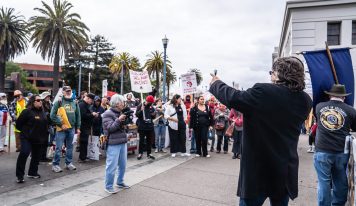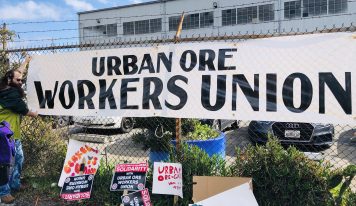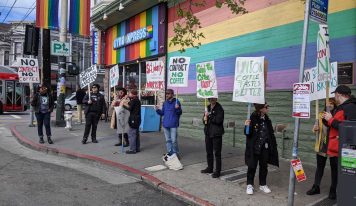San Francisco — On Monday at the Board of Supervisors Land Use Committee meeting, Supervisor Dean Preston announced the release of a report detailing a phenomenon many of us have witnessed in San Francisco for years: thousands of homes sitting unoccupied throughout the city. According to the report, roughly 10% of the housing in San Francisco — over 40,000 housing units — lay vacant in 2019.
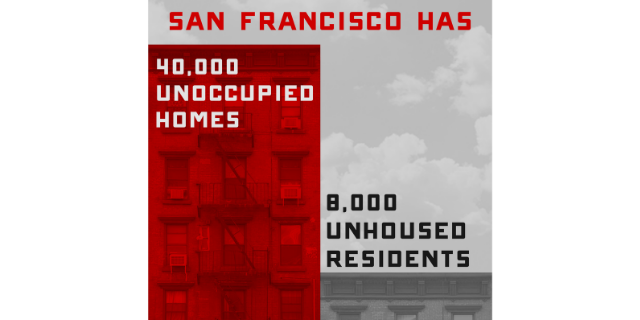
The human toll of a financialized housing market is jarring when these 40,000 vacant units are contrasted with the 8,000 to 10,000 residents in the city recognized as unhoused in 2019. The fact that people are sleeping outside of unoccupied housing is an inefficient and inhumane use of resources— one that the COVID-19 pandemic exacerbated.
In 2017, the UN found evidence that the city of San Francisco is violating the human rights of unhoused people, illustrating the harsh punishment the city doles out for those who do not participate in the aggressive housing market of the area:
“Attempting to discourage residents from remaining in informal settlements or encampments by denying access to water, sanitation, and health services and other basic necessities, as has been witnessed by the Special Rapporteur in San Francisco and Oakland constitutes cruel and inhuman treatment and is a violation of multiple human rights, including the rights to life, housing, health and water and sanitation.”
Monday’s land use report highlights that relative to the state-required targets for San Francisco, the city is around 10,000 units short of the affordable housing target but exceeded the market rate housing target by around 6,000 units. It further concludes that of the “affordable” housing produced, only 20% is actually affordable for moderate to low-income residents. Vacancies are typically concentrated in areas where condos are being constructed: SOMA, Downtown, and the Mission District. These new properties will not solve people’s housing needs until they are affordable and occupied.
Monday’s report details that over 8,000 units of the vacant housing units are owned but not occupied— likely sitting empty as speculative investment property. Using the housing infrastructure of the city solely for profit goes against the interest of housing everyone and can be deterred with an empty homes tax.
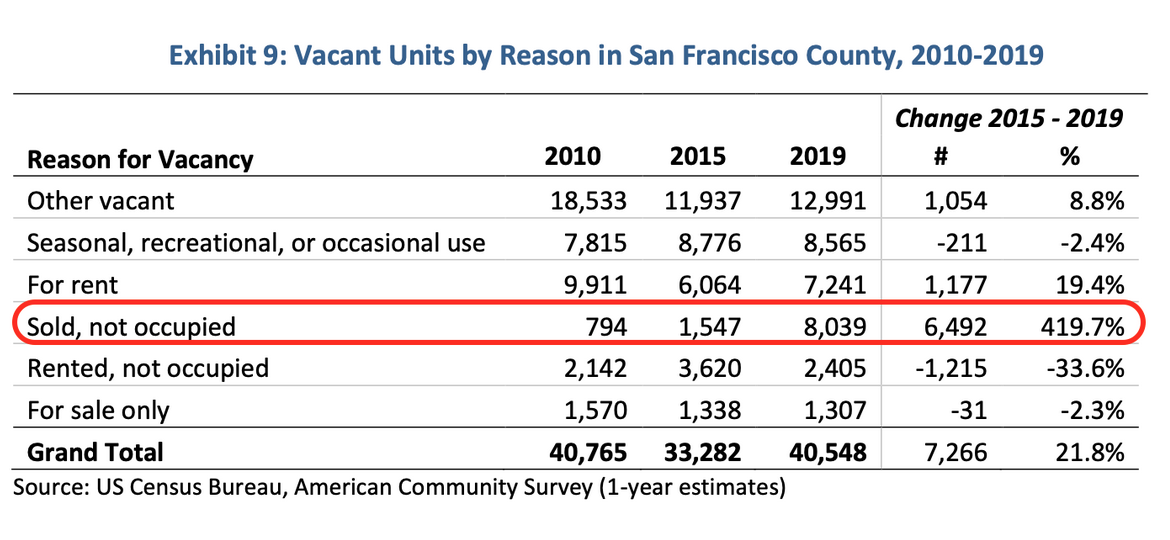
An empty homes tax, or vacancy tax, essentially charges for continually vacant housing. Depending on the policy, the tax could be a flat rate or based on a variable. This wouldn’t be the first vacancy tax in the Bay: in 2020, voters in San Francisco approved a commercial property vacancy tax based on the linear feet of storefront retail property. Voters in Oakland passed a fixed flat fee vacancy tax in 2018. Oakland’s vacancy tax impacts all properties but has many exemptions including: very low income, financial hardship, non-financial hardship, exceptional circumstances, active construction, building permit application, low-income senior, disabled owner, non-profit, and substantially complete planning application.
Vancouver’s Empty Homes Tax has generated over $21 million US dollars annually, which is then used for affordable housing in the city. Monday’s report estimates that there are anywhere from four to seven thousand vacant units in San Francisco that would be subject to a vacancy tax— with the potential to generate anywhere from $12 to $61 million dollars.
A tax on vacant units would generate millions of dollars for the city and activate thousands of homes that are sitting unoccupied. It’s time to make use of the vacant housing of the city to immediately relieve an inhumane housing crisis.
Read the full report at https://tinyurl.com/SF-Vacancy-Report
Photo by Vlada Karpovich



